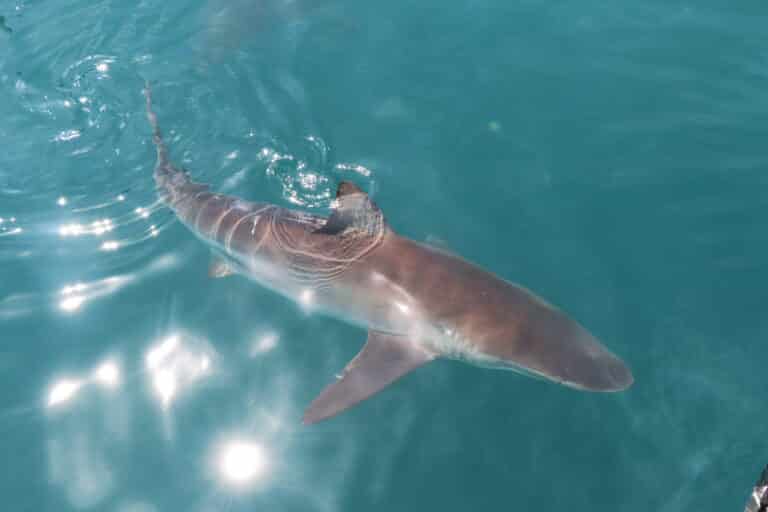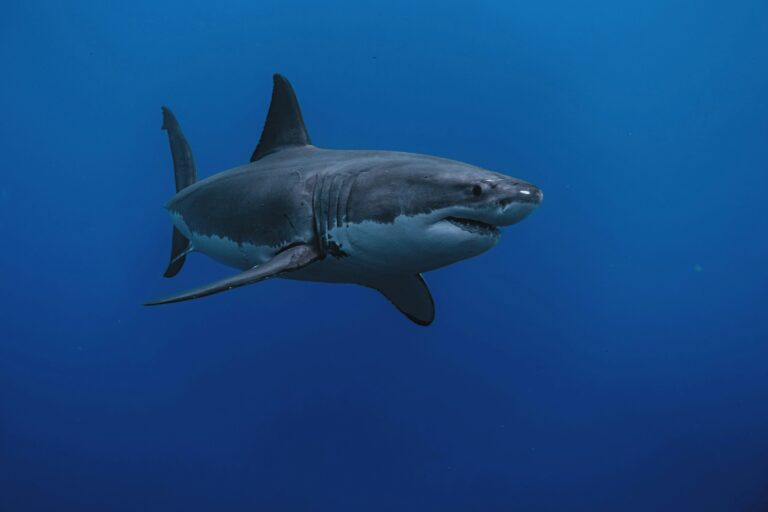By Courtney Cooper
Shark Conservation in Africa: How Shark Tours are Part of the Solution
Sharks are often misunderstood and feared creatures, portrayed as dangerous predators in popular media. However, these majestic animals play a crucial role in maintaining the health of marine ecosystems. Unfortunately, sharks face severe threats, including overfishing, habitat loss, and the ongoing destruction of coral reefs. In Africa, where sharks are vital to oceanic biodiversity, the importance of their conservation cannot be overstated. Interestingly, one emerging tool in the fight for shark preservation is ecotourism, particularly shark tours. These tours not only educate the public about the need for shark conservation but also offer a sustainable economic alternative to harmful practices such as shark fishing. In this article, we look at shark conservation in africa.
We also discuss further shark facts that you might be interested in! Apex Shark Expeditions provides the best shark cage diving Cape Town experience.
Shark Conservation in Africa: How Tours Help Save Sharks

The Shark Crisis in Africa
Sharks are at the top of the marine food chain, regulating the populations of other fish and maintaining balance within the ecosystem. However, according to the International Union for Conservation of Nature (IUCN), a significant number of shark species are currently at risk, with some categorised as endangered. A major contributor to this crisis is overfishing. In African waters, shark finning, where sharks are caught for their fins and then discarded, is rampant. The fins are highly valued in international markets, particularly in Asia, leading to unsustainable shark populations.
Additionally, the destruction of marine habitats, such as coral reefs and mangrove forests, further exacerbates the problem. Without these crucial environments, sharks face diminishing resources and breeding grounds. As a result, shark populations around the African coast, particularly in South Africa, Kenya, and Mozambique, are declining. These declines not only affect the sharks themselves but also have cascading effects on marine biodiversity, ultimately threatening entire ecosystems.
Shark Tours: A Sustainable Solution
Shark tours, led by responsible companies like Apex Shark Expeditions, are rapidly gaining popularity as both a means of educating the public and fostering shark conservation. These tours offer the opportunity to see sharks in their natural habitat, allowing individuals to gain a deeper understanding of these animals’ vital role in the ocean ecosystem.
Research has shown that shark tourism can provide a substantial economic incentive for the protection of sharks. A 2019 study by the Wildlife Conservation Society (WCS) highlighted the significant contribution of shark ecotourism to local economies in African countries, particularly South Africa.
The research found that the shark diving industry in South Africa alone generates over $30 million annually. This income is derived from tourists who pay for shark encounters, guided dives, and educational experiences. In turn, the revenue generated from shark tourism creates strong incentives for governments and local communities to protect sharks and their habitats.

Scientific Evidence Supporting Ecotourism for Shark Conservation
Scientific research backs the positive impacts of shark ecotourism on shark populations. A 2016 study published in the journal Biological Conservation examined the economic and ecological benefits of shark tourism in Mozambique. The study found that the financial income generated from shark tours far outweighed the potential income from shark fishing, providing a compelling argument for the conservation of sharks. It concluded that ecotourism, particularly in areas with healthy shark populations, could be an effective strategy for reducing overfishing and supporting sustainable marine conservation efforts.
Apex Shark Expeditions provides the best shark cage diving in Gansbaai, as well as, shark cage diving in Simons Town. We also share insight into what shark teeth can tell us about ocean health.




